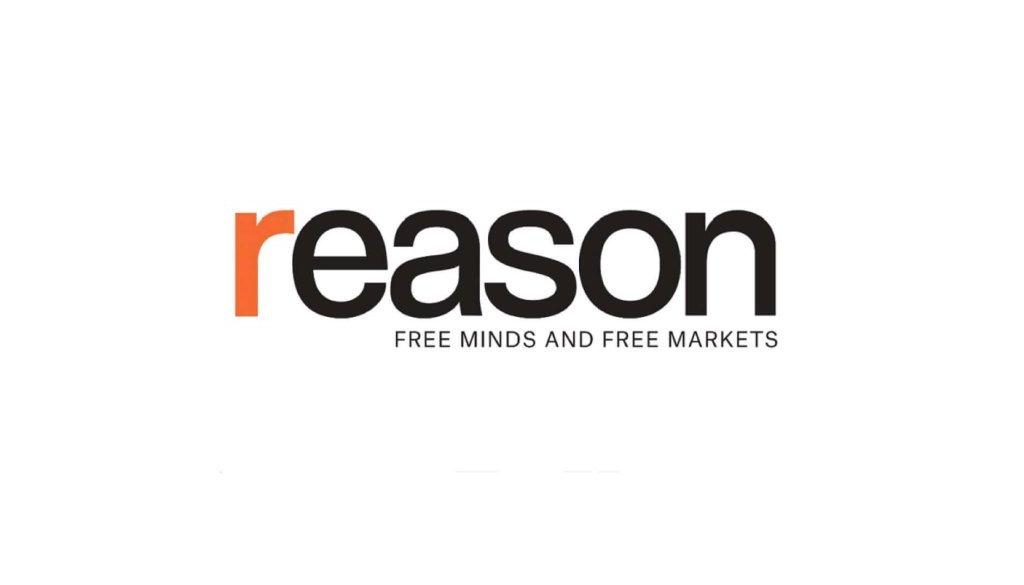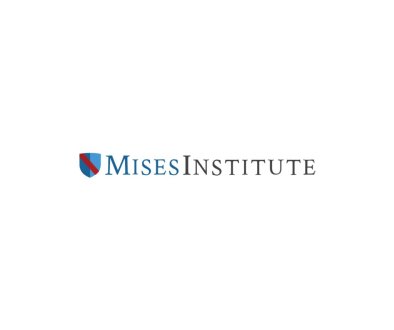Draft Amicus Brief in Chiles v. Salazar, the Professional Speech / Minor Conversion Therapy Case
I’ve written an amicus brief on my own behalf in this case (here’s the PDF version). I’ll be filing it tomorrow, but I thought I’d preview it here, in case there are some corrections or criticisms that I should take into account. Please let me know if you have anything to suggest (though please recall that the brief is aimed at fitting the case within the existing Supreme Court precedents, and not arguing to the Court how existing precedents should be overruled or modified).
Interest of the Amicus Curiae
Eugene Volokh is the Thomas M. Siebel Senior Fellow at the Hoover Institution at Stanford University. He is one of the few professors to have written on the speech integral to illegal conduct exception to the First Amendment, on which the decision below relied in part, Pet. App. 49a-50a. In particular, he is the author of The “Speech Integral to Criminal Conduct” Exception, 101 Cornell L. Rev. 981 (2016); Overbroad Injunctions Against Speech (Especially in Libel and Harassment Cases), 44 Harv. J.L. & Pub. Pol’y 147 (2022); One-to-One Speech vs. One-to-Many Speech, Criminal Harassment Laws, and “Cyberstalking,“ 107 Nw. U. L. Rev. 731 (2013); and over 50 other law review articles on the First Amendment, as well as a First Amendment casebook.
Amicus hopes that this brief can help explain the proper boundaries of the speech integral to illegal conduct exception, and can show that this Court—unlike the court below—should not rely on that exception in this case.
Summary of Argument
[1.] Amicus takes no position on what First Amendment test this Court should articulate for restrictions on professional-client speech. But this Court should not apply the speech integral to illegal conduct exception to formulate such a test, or to resolve this case.
Speech cannot lose its protection just because it is relabeled conduct and then banned. Indeed, this Court has consistently recognized that making “conduct” illegal or tortious abridges free speech when the conduct consists of speech that supposedly causes harm because of what it communicates.
Rather, the “speech integral to illegal conduct” exception properly applies to speech that sufficiently risks causing or threatening some other nonspeech crime or tort: It is that relationship that makes speech “integral” to the criminal or tortious conduct.
The illegal conduct can consist of physical nonspeech behavior. It can consist of speech that is independently constitutionally unprotected under some other exception. And it can consist of an agreement, which is treated as analogous to physical conduct. But it is not enough that the speech itself be labeled illegal conduct, such as “contempt of court,” “breach of the peace,” “sedition,” “use of illegally gathered information,” “treatment,” or “professional advice.”
[2.] The Tenth Circuit thus erred in relying (Pet. App. 49a-50a) on the speech integral to conduct exception and on the case that first enunciated it, Giboney v. Empire Storage & Ice Co., 336 U.S. 490 (1949). It is a mistake to say that the Colorado law “incidentally involves speech.” Pet. App. 50a. Rather, the Colorado ban on conversion therapy, when applied to therapy that involves purely speech (as opposed to, say, the administration of medicines), targets speech precisely because of what it communicates.
In such cases, there is only speech—and no other illegal conduct. When psychotherapists counsel patients about how to accept their biological sex or how to avoid same-sex attraction, the psychotherapist is not promoting or threatening any separate crime or tort.
[I.] The speech integral to illegal conduct exception only applies to speech that promotes some other crime or tort
[A.] Speech cannot be restricted as “integral to illegal conduct” simply by classifying it as conduct
The First Amendment protects speech against many laws that make such speech illegal. Governments cannot evade that protection using laws that reclassify speech as conduct. To “classify some communications as ‘speech’ and others as ‘conduct’ is to engage in nothing more than a ‘labeling game.’ … Simply put, speech is speech, and it must be analyzed as such for purposes of the First Amendment.” King v. Governor of N.J., 767 F.3d 216, 228 (3d Cir. 2014) (citation omitted) (concluding that restrictions on conversion therapy cannot be justified by the argument that therapy, even purely verbal therapy, is conduct). If the “‘only “conduct” which the State [seeks] to punish'” is “‘the fact of communication,'” the statute regulates speech, not conduct. Otto v. City of Boca Raton, 981 F.3d 854, 866 (11th Cir. 2020) (citation omitted) (likewise).
Indeed, “[s]aying that restrictions on writing and speaking are merely incidental to speech is like saying limitations on walking and running are merely incidental to ambulation.” Wollschlaeger v. Governor of Fla., 848 F.3d 1293, 1308 (11th Cir. 2017) (en banc) (invalidating a law that restricted doctors’ conversations with patients about gun possession). Adopting this “circular” reclassification argument would enable governments to ban virtually any speech. Matter of Welfare of A.J.B., 929 N.W.2d 840, 859 (Minn. 2019) (striking down a stalking law, as applied to speech, and rejecting argument that it merely regulated conduct). The speech integral to illegal conduct exception does not validate such circular reasoning.
[B.] “Speech integral to illegal conduct” must refer to speech that promotes or threatens other illegal conduct
Rather, the word “integral,” as used in the cases that apply the speech integral to illegal conduct exception, must be seen as referring to speech being connected to some other crime. “[T]he cases that involve this form of unprotected speech involve speech that furthers some other activity that is a crime.” State v. Doyal, 589 S.W.3d 136, 143 (Tex. Crim. App. 2019). “[F]or the exception to apply, the speech must be integral to some conduct or scheme that is illegal in nature and independent of the speech that might be used to facilitate or accomplish the conduct or scheme.” People v. Burkman, 15 N.W. 3d 216, 236 (Mich. 2024) (emphasis added); see also State v. Shackelford, 825 S.E.2d 689, 698-99 (N.C. Ct. App. 2019) (same). The exception cannot justify banning speech simply because the speech is illegal under the law that is being challenged, because then there is no other crime to which the speech is integral.
The progenitor of the speech integral to illegal conduct exception, Giboney, 336 U.S. 490, well illustrates how speech can lose constitutional protection by promoting some other illegal act. There, Empire Storage & Ice refused to join an unlawful cartel, and a “union thereupon informed Empire that it would use other means at its disposal to force Empire to come around to [its] view.” Id. at 492. When “Empire still refused to agree,” “[i]ts place of business was promptly picketed by union members.” Id.
The Government could prohibit the union’s picketing, this Court held, because the picketing essentially solicited a separate criminal act by Empire: The picketers’ “sole, unlawful immediate objective was to induce Empire to violate the Missouri law” forbidding agreements in restraint of trade “by acquiescing in unlawful demands to agree not to sell ice to nonunion peddlers.” Id. at 502. The speech integral to illegal conduct exception, however, would not have condoned prosecuting mere picketing, in the absence of some other crime that the picketing solicited.
Likewise, many courts considering bans on harassment or stalking have recognized the same principle. Those statutes generally make it a crime to communicate with the intent to “abuse,” “annoy,” “harass,” “offend,” or “severe[ly] emotional[ly] distress” a particular person. Volokh, One-to-One Speech vs. One-to-Many Speech, Criminal Harassment Laws, and “Cyber Stalking,” supra, 107 Nw. U. L. Rev. at 740, 768-69. Because such laws are not limited to speech “‘proximate[ly] link[ed]'” to “some other criminal act,” they amount to “a direct limitation on speech that does not require any relationship—integral or otherwise—to unlawful conduct.” People v. Relerford, 104 N.E.3d 341, 352 (Ill. 2017).
Similarly, in Matter of Welfare of A.J.B., the Minnesota Supreme Court rejected the Government’s argument that a stalking by mail statute was valid under the “speech integral to [illegal] conduct” exception. 929 N.W.2d at 852, 859. There, the statute was unconstitutional because it was not limited to speech aimed “to induce or commence a separate crime.” Id. at 852. The court recognized that the exception did not apply because “the speech covered by the statute is integral to [illegal] conduct because the statute itself makes the conduct illegal.” Id. at 859; see also Doyal, 589 S.W.3d at 143 (the exception only covers “speech that furthers some other activity that is a crime”); State v. Burkert, 174 A.3d 987, 1000 (N.J. 2017) (harassment “cannot be transformed into [illegal] conduct” based on “[t]he circularity of the language of [a statute]”); People v. Marquan M., 19 N.E.3d 480, 484-86 (N.Y. 2014) (same for “cyberbullying”).
Of cours
Article from Reason.com

The Reason Magazine website is a go-to destination for libertarians seeking cogent analysis, investigative reporting, and thought-provoking commentary. Championing the principles of individual freedom, limited government, and free markets, the site offers a diverse range of articles, videos, and podcasts that challenge conventional wisdom and advocate for libertarian solutions. Whether you’re interested in politics, culture, or technology, Reason provides a unique lens that prioritizes liberty and rational discourse. It’s an essential resource for those who value critical thinking and nuanced debate in the pursuit of a freer society.



